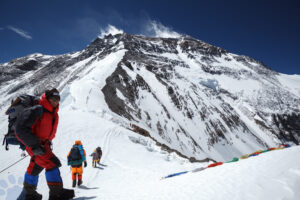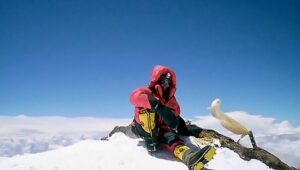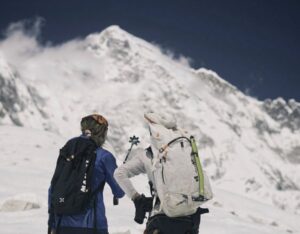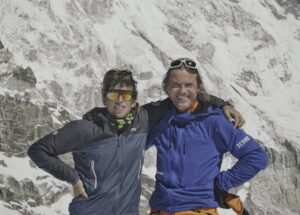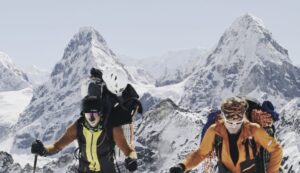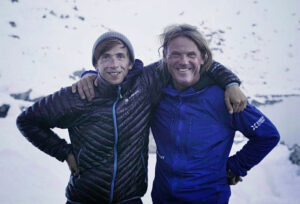Andrey Vasiliev and his team are back in Nepal for a new attempt on the tough south side of Cho Oyu. After a serious attempt on the SSW Ridge last year, they now have a different route in mind.
Not new, but far from easy
Interestingly, the Russians are not aiming for a new route. Instead, they will try one of the few routes opened on the highly difficult south face.
“We are planning to climb Cho Oyu by the 1991 Russian route, via the East ridge,” Vasiliev told ExplorersWeb.
Last year, the team reached 7,350m on the SSW ridge but had no opportunity to launch a summit push.
For Vasiliev, the final decision was made based on tactical problems.
We realized that we couldn’t fix the needed ropes all the way to the summit, at least without taking unacceptable risks. By the time we decided to call the expedition off, we had only three members healthy enough to try a summit push. The lower sections of the route were so difficult that three would not be enough to carry all the ropes we would need for the upper sections.
Our only chance was to try alpine style from the highest point fixed (at 7,350m), but we also had to bear in mind the descent. Without fixed ropes, it would have been too difficult to pass the middle section, a ridge with constant ups and downs. We knew that after pushing for the summit we might be too tired for the difficulties on descent.
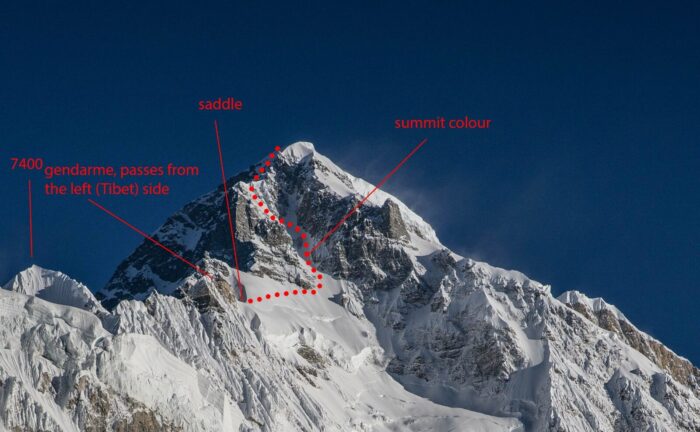
The route the Russians planned last year for the upper section of Cho Oyu. Photo/topo: Andrei Vasiliev
This time, they have a well-studied plan that Vasiliev shared with ExplorersWeb.

A recent picture shot by Andrey Vasiliev on the ridge. Photo: RAF
We will start acclimatization on the 1991 Russian route, which should be not very technical up to the main (East) ridge at some 7,900m.
Meanwhile, we will have plenty of chances to have a good look at the South Face and analyze other options such as the 1978 Austrian route. We like this route but last year we couldn’t see it. It was not visible from our approach from Gokyo and the SW ridge. Once acclimatized, we will choose the route for the final push.
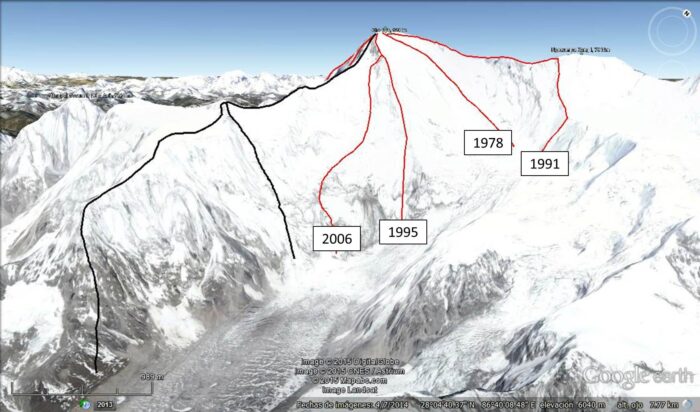
The routes on the south face of Cho Oyu. On the right, there is the 1991 Russian route and the 1978 Austrian route. Map: Animal de Ruta
Memories from 1991
As Vasiliev explained, the crux of the East Ridge (the 1991 Russian route) is what the Russian team calls “the hall.” It is a huge gap on the final rocky ridge, a vertical wall that must be rappeled down and climbed again on the other side. That section stopped many expeditions before 1991, and the Russian team faced serious difficulties there.
“[In 1991] the first and second groups of climbers in the large Russian expedition tried to summit from Camp 4, pitched right before the gap. But they had to retreat because the route ahead was too long. The third team set up a fifth camp after the gap and they finally reached the summit. The expedition ended tragically as one member died on descent, hit by a falling rock,” Vasiliev said.
“Summarizing, the main challenge on the East Ridge is to spend at least three nights around 8,000m,” Vasiliev explained. The Russians are climbing without supplementary oxygen.
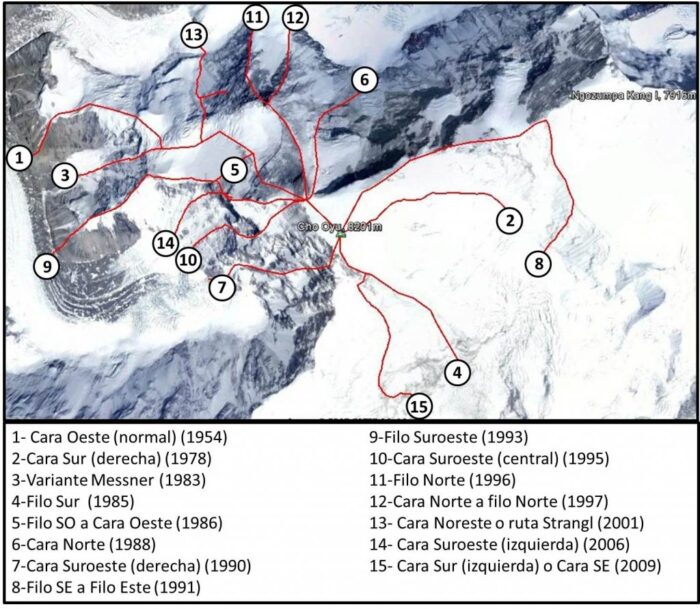
All the Cho Oyu routes, as compiled by the Animal de Ruta blog. The four climbs done from the Nepal side are number 15 by Denis Urubko, four by the winter Polish team, two by the 1978 Austrian team, and eight by the Russians along the East Ridge.
Building experience
“During last year’s attempt, we faced very strong winds from Tibet after the middle of October. The 1991 team also reported strong winds when they reached the main ridge. We have to expect similar conditions and worry about them. That is the main reason we have a plan B.”
Asked if, instead of repeating a route, they had considered a new route. Vasiliev replied:
“Even before thinking of trying the Austrian route, we need to check conditions on the icefalls, avalanche risk, etc. As for a new route, we do see potential lines here on Cho Oyu and the other 8,000’ers, but we still need to build enough self-confidence to try without taking on too much risk. We need more experience, so our main goal this year is to get experience on serious routes on 8,000’ers. Last year we made several serious tactical mistakes. We will try not to repeat them.”

